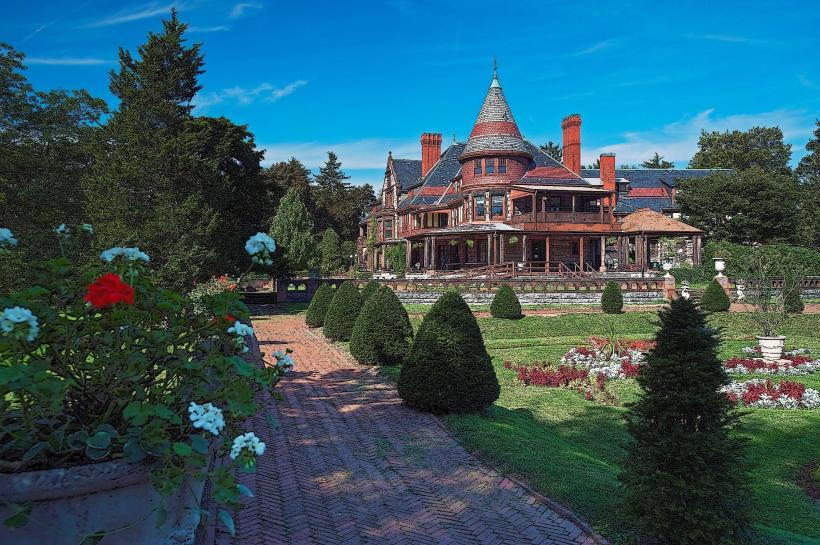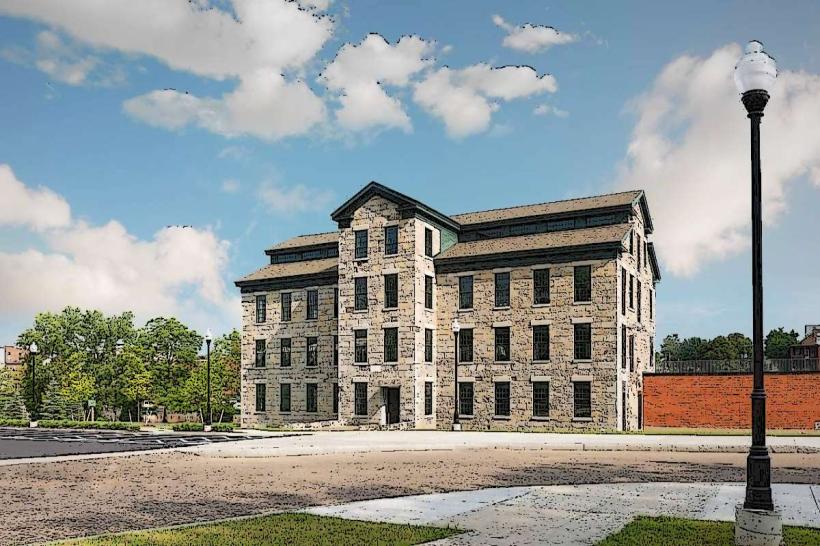Information
Landmark: Glenn H. Curtiss MuseumCity: Finger Lakes
Country: USA New York
Continent: North America
Glenn H. Curtiss Museum, Finger Lakes, USA New York, North America
The Glenn H. Curtiss Museum, located in Hammondsport, New York, is a specialized museum dedicated to preserving and celebrating the legacy of Glenn Hammond Curtiss, a pioneering aviator, inventor, and entrepreneur who is often called the "Father of Naval Aviation." The museum highlights Curtiss’s groundbreaking contributions to early aviation and the broader history of transportation, offering a comprehensive look at his innovations and their impact on modern flight and technology.
Historical Background and Significance
Glenn Curtiss (1878–1930) was a key figure in the development of early powered flight, motorcycles, and seaplanes. His work significantly advanced aviation technology and helped establish the U.S. Navy’s air capabilities. Curtiss was a prolific inventor and held more than 400 patents in fields ranging from aircraft engines to motorcycles.
The museum was founded in 1962 by Otto Kohl, a dedicated local historian, to preserve Curtiss’s heritage in his hometown of Hammondsport, located in the scenic Finger Lakes region. The museum serves both as a tribute to Curtiss and as an educational center for aviation history.
Location and Facilities
Address: 8419 State Route 54, Hammondsport, NY 14840
The museum building is approximately 60,000 square feet, designed to accommodate large aircraft and vehicles while providing space for interactive exhibits, educational programs, and restoration work.
It includes a 75-seat theater for documentary screenings, lectures, and special presentations.
A museum store offers aviation-themed gifts, books, and souvenirs.
The museum also has an event space for special gatherings, receptions, and educational workshops.
Collections and Exhibits
The Glenn H. Curtiss Museum boasts one of the most extensive collections of early aviation and transportation artifacts in the United States, including:
Aircraft Collection
Authentic and replica aircraft from the early 1900s, highlighting Curtiss’s designs and innovations.
Notable aircraft include the 1917 Curtiss JN-4 “Jenny”, a World War I training plane that became iconic for its role in early American aviation.
The 1919 Curtiss Seagull, an amphibious flying boat.
A 1931 Curtiss P-40 Warhawk, a famous fighter aircraft from World War II.
Other experimental and prototype planes related to Curtiss’s work.
Motorcycles and Automobiles
A wide array of vintage motorcycles, including Curtiss’s own early motorbikes, such as the famed 1907 V8-powered motorcycle, which was one of the most powerful motorcycles of its time.
Early automobiles including rare models like a 1914 Ford T Depot Hack and a 1909 Bruch Runabout Model BC.
Other Artifacts
Collections of wooden boats, fire engines, bicycles, and antique tools.
Displays of Curtiss’s patents, technical drawings, and personal memorabilia.
Exhibits showing the technological evolution from bicycles to motor vehicles to aircraft.
Restoration Shop
A highlight of the museum is its on-site Restoration Shop, where skilled volunteers and professionals work to restore and preserve historic aircraft and vehicles. Visitors can observe the painstaking craftsmanship involved in bringing century-old machines back to life. This behind-the-scenes experience adds a dynamic and educational dimension to the visit.
Educational Programs and Children’s Innovation Gallery
The museum is deeply committed to education, offering a variety of programs aimed at all ages:
School tours and group visits provide hands-on learning experiences about the science of flight and transportation history.
Workshops and demonstrations often focus on aerodynamics, engineering, and invention.
The Children’s Innovation Gallery is an interactive space where kids can explore the mechanics of flight through engaging exhibits and experiments. It includes a safe play area designed to inspire curiosity and creativity about technology and invention.
Visitor Information
Hours of Operation:
May 1 to October 31: 9:00 AM – 5:00 PM daily
November 1 to April 30: 10:00 AM – 4:00 PM daily
Admission Fees:
Adults: $13.50
Seniors (65+): $12
Youth (7–18): $10
Children under 6: Free
Accessibility: The museum is wheelchair accessible and family-friendly, making it an excellent destination for visitors of all ages.
Summary
The Glenn H. Curtiss Museum offers an in-depth and inspiring exploration of the life and achievements of one of America’s most influential aviation pioneers. Its extensive collections, restoration work, and educational initiatives provide a unique window into the early days of flight, transportation innovation, and technological progress. Situated in the heart of New York’s Finger Lakes region, it’s a must-visit destination for aviation enthusiasts, history lovers, and families interested in science and invention.










